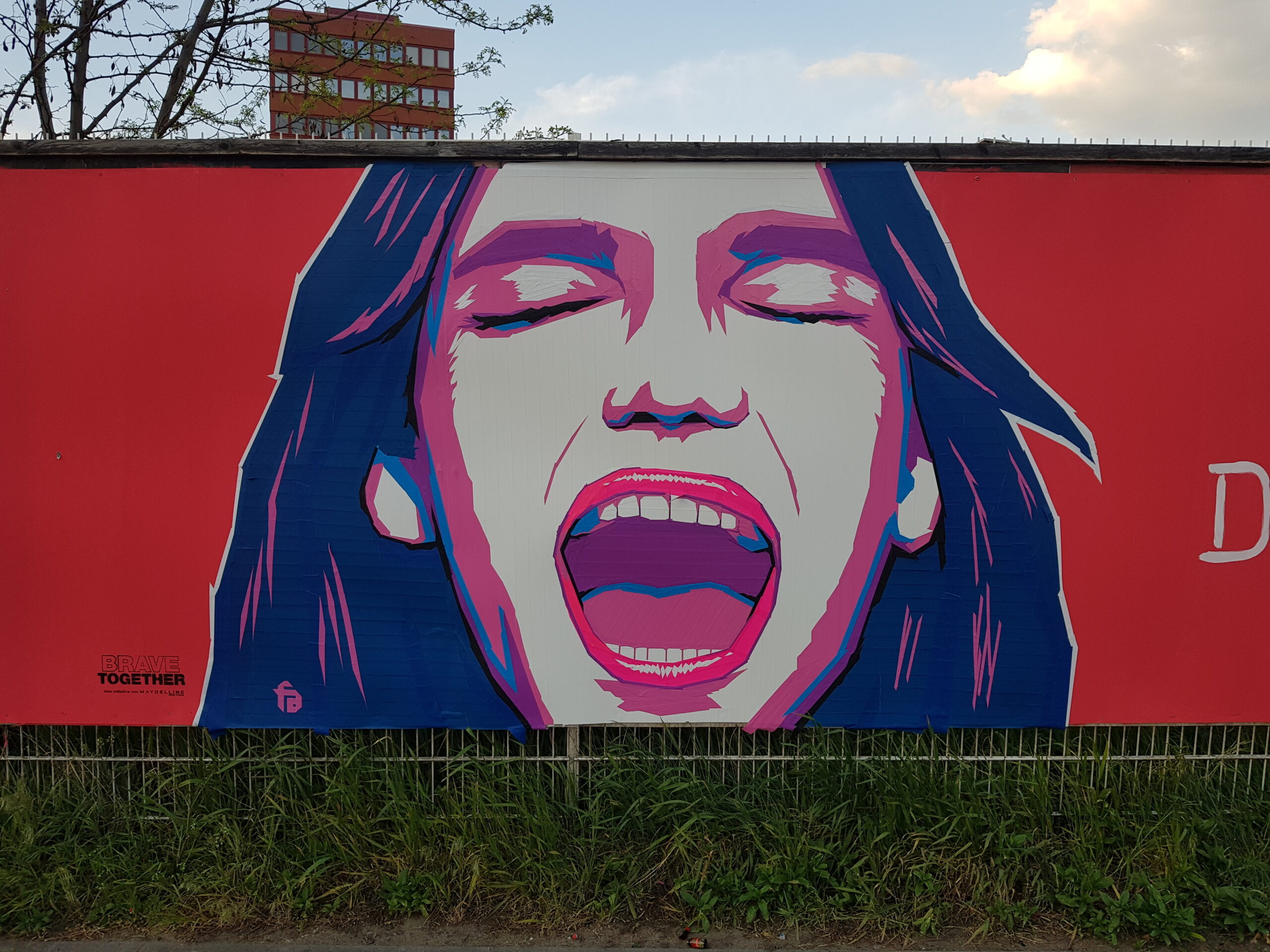The ‘will’ of the Extrinsic Self relates solely to the assertion of limits and the thing about this is that these limits (any limits, for that matter) don’t really exist. Asserting limits is how we create and maintain the definite entity that we think we are. ‘Argue hard enough for your limits and they shall be yours, says’ Richard Bach, but the other way of putting this is to say that we actually want these limits. That’s why we’re always arguing so determinedly for them.
Without limits the extrinsic self can’t exist and so of course it always has to be arguing for them. Limits can be seen as things we can’t do or places we can’t go but we can also set limits for ourselves in place in terms of what we can do and where we can go (i.e. in terms of what we aim at). Every time we identify a goal we’re setting limits for ourselves – by saying what we do want to happen we’re setting limits with regard to what we don’t want. Whether we’re aiming at something or trying to avoid it it’s all about limits; we can’t – obviously enough – engage in any sort of purposeful activity without there being limits involved. No limits means no purposefulness.
Limits are what gives rise to certainty; without limits or boundaries there can be no certainty whatsoever and if there is no certainty then there can’t be any purposeful activity! In one way this is an unremarkable enough things thing to say, it’s like saying that we have to have a concept or idea about something before we can react to it in either a positive or negative way (i.e. in terms of either attraction or aversion), but all we need to do – in order to say something genuinely surprising – is to go into this point just a little bit deeper. Attraction and aversion necessarily involve the self which is either being attracted or repelled; we are of course so convinced that the self comes first (as seems very obvious to us) but that’s only a trick of our thinking. Thinking explains things (or models things) by projecting boundaries or assuming limits – this is the only way that it can get on with the business of predicting stuff and analysing stuff. This is fair enough therefore if there is predicting and analysing to be done then we have to project boundaries, we have to assume limits, it’s as simple as that.
Assuming limits or projecting boundaries is what we could call a ‘necessary device’ if we are to engage in calculations (or think about things) and that is fine. What isn’t so fine is when we get all sloppy about what we are doing and start acting as if this necessary convention isn’t a convention but ‘a fact of life’. It’s a familiar turn of phrase to say that under certain circumstances we have become the ‘the prisoners of our own device’ and what we’re talking about here is what we could call the ‘archetypal example’ of this sort of thing. When we forget that the limits that we have projected set aren’t really there of their own accord and start acting as if they are then we really have and truly have become ‘prisoners of our own device’, and this happens every time we think.
The Extrinsic Self is called the Extrinsic Self because it is it is constructed on the basis of limits that we ourselves have set and then taken for granted as being ‘an essential or non-negotiable aspect of the universe’. We project the limits out there (which, as we have said, we absolutely have to do if we are to perform any calculations) and then we use these projected limits in order to construct our idea of ourselves. This is a profoundly unconscious process – we can be aware of trying to create a particular persona, or presenting ourselves in a certain light, but we can’t have any awareness of moving away from the situation where there isn’t the unquestionable viewpoint which is the self-concept to the situation where there very much is (subjectively speaking at least). The nature of this transformation (the fact that this dramatic change can take place) is flatly incomprehensible to the ES and so of course we can’t remember it happening to us. This is the principle of irreversibility at its finest – we couldn’t get a more essential example of an irreversible process than this. The reason that unquestionable viewpoint which is the Extrinsic Self is so questionable is of course because it is the viewpoint that we use to think about everything. Because it is the viewpoint that we use to think about everything we can’t question it; in order to question our assumed or taken-for-granted viewpoint it would have to not be our viewpoint, but it very much is! A taken-for-granted viewpoint is always a blind spot, in other words.
Any ‘viewpoint’ always excludes all other competing viewpoints – that’s how it gets to be a viewpoint. Any VP also excludes the unconditioned view (which is to say, it is stuck in his own rut and can’t ever get out of this rut which means that it doesn’t know that this is its situation). Furthermore, when we’re looking at the world, and are stuck in it in the way that we are, then our relationship with the ‘unconditioned view’ is one of fear. Krishnamurti says somewhere that whenever there is fear there can’t be intelligence and this means that the Extrinsic Self (which is formed as we have been saying when we adopt the provisional boundaries that have been created by the specific viewpoint that we are using in order to look out at the world) can never have any genuine intelligence. It is always going to be acting in a ‘dumb’ way. Because the ES constructs itself on the basis of the arbitrary viewpoint which it has assumed, and since the viewpoint in question can only exist by excluding the ‘unconditioned view’ (which is how things would look if we weren’t seeing the world in this particular narrow way) it is in the very precarious situation of only having any type of existence at all if the VP which it has assumed really is ‘the only VP there is’, which is completely not the case. For this reason its relationship with ‘the wide-open view’ is always going to be one of fear.
As the ‘Extrinsic Self’, there is no way in which we can have any insight into what this Great Fear is all about – we can’t understand that the reason we are afraid of the wide-open view is because we have identified with a self that has been created by treating the narrow or closed VP as ‘the only possible way to see things’ – in order to be able to see this we would have to be somehow ‘on the outside’ of this act of identification and this is precisely what we’re not. Our understanding is entirely contained (or defined by) this viewpoint, which is to say, the entirety of how we understand things (of how we understand anything) is based upon the limits that come into provisional existence as a result of ‘assuming the narrow viewpoint’. These limits (or rules) are now the bedrock both of our way of understanding things and our own (apparent) existence. This is our foundation, our total way of orientating ourselves to life. In the petty little world in which we dwell this really is our foundation, and our foundation is as solid as a rock to us; but that would only genuinely be the case if this petty little world were a real thing, and it isn’t. It seems like the ‘real world’ to us but that is purely because ‘the wide-open view’ has been excluded from the picture, as we have said. So we can’t – in conclusion – understand in any way that there is (or that there could be) such a thing as the ‘wide-open picture’ (we implicitly believe that the conditioned world which we inhabit is that WOP, after all) but we can all the same be utterly terrified by it. We can’t comprehend it but we can be terrified by it. We are terrified by openness precisely because we can’t understand it for what it really is; we simply don’t have the capacity to understand it – not as long as we are identified with the Extrinsic Self we don’t.
So the reason we can’t ever be ‘genuinely intelligent’ (when we are operating as the ES) is because we are always having to distort everything in order to make it looks as if the limits or rules which our conditioned world is founded upon really are ‘self-existent’ things when they’re not. This is the key characteristic of the conditioned or extrinsic self – that it insists on distorting everything to fit in with its untrue basis for understanding things. Intelligence doesn’t come into this, therefore- it has no place here at all! ‘Intelligence’ isn’t a word we should use in the same sentence as the everyday or extrinsic self; when we exist in the world as this contrived self then all we are ever interested in is getting everything to fit in with our particular, distorted way of looking at the world and although – as a rule – we are always (or almost always) able to do this, we can only be successful in this regard at the cost of making a fool of ourselves. This might seem like a high price to pay (we are actually making a total mockery of ourselves and everything we do) but when it is escaping fear that we are talking about then no price is too high to pay. Nothing matters to us except escaping the fear and this is precisely the power that fear has over us – it has absolute power over us. Fear is our master and for this very reason we cannot for the life of us see that it is – the whole point of ‘running away from fear’ is not seeing that the fear is there, after all. If we see the fear then we see what we’re afraid of and this is exactly what we don’t want.
Saying that fear has ‘absolute power over us’ is another way of saying that fear is a determining factor – it determines everything about us, right from the word go. There is no freedom to be had via running away from fear, no matter how much running we do, and this is of course unlikely to be news to anyone. What we don’t see however is that the life of the Extrinsic Self is nothing else other than fear avoidance; there’s nothing more to it than this and – for this reason – it is a predetermined exercise right from the very start. The essential ‘gist’ of what the life of the Extrinsic Self is all about is very easily grasped therefore – we’re running down predetermined tracks a whole time, avoiding existential terror without knowing that we are, and imagining the whole time that we stand a chance of winning freedom for ourselves (in whatever way we might happen to understand it) even though this is the most impossible thing ever. The basic underlying motivation of the ES is to win freedom from the predetermined situation that we are in, even though we don’t see ourselves as being stuck or predetermined, and don’t – therefore – understand that this is what we are chasing. The basic situation of the ES is that its core motivational drive is to escape from being ‘what it is’, even though it doesn’t know what it is, and doesn’t know therefore what it is trying to escape from. It makes sense to us – when we’re operating on the basis of the Extrinsic Self – that we can ‘improve ourselves our situation’ and so we put a lot of effort into this, but there’s no improving the situation of the ES! The ES is always the ES, just as the game is always the game.
The Extrinsic Self is always ruled by fear because – as we have said earlier – it only gets to continue with its (strictly provisional) existence by denying the truth of its situation, which is that it is strictly provisional! The ES is ‘the taken for granted viewpoint’ and this viewpoint (like any other viewpoint) can only exist by excluding all other perspectives. We have to deny that any other way of seeing the world exists, and then put a lot of effort into refraining from noticing that we are deliberately ignoring the work that we are putting into this. When we deny the bigger picture and refuse to notice that this is what we are doing then this does just doesn’t just ‘give rise to fear’, it is fear. Fear doesn’t come into being as a result of our relationship with anything real, in other words, it comes about because of our unacknowledged refusal to relate to anything real. Fear is our acknowledged refusal to relate to anything real and because we won’t acknowledge it it rules as completely. Fear rules us completely, without us being able to see that it does, precisely because we don’t want to know anything about it. We don’t want to know anything about it because we’re afraid to know. We’re afraid to know that we’re afraid and we’re also afraid to know that we’re afraid to know that we’re afraid…
In conclusion, we experience ourselves as having the freedom to ‘assert the limit’ and this is where we get our feeling of autonomy from, but the truth of the matter is that the limit in question was predetermined by our way of looking at things right from the beginning. Our thoughts (because all thoughts are limits) are predetermined by our way of looking at things and this is the way of looking at things that has been given to us by the assumed framework (that we don’t know to be assumed). It is the framework that is calling the shots therefore, not us. The framework controls us so that when we assert the limit (i.e., when we think!) it controls our perceptions so that we find the act of achieving (or trying to achieve) the limit meaningful when it isn’t. We perceive the ‘acting out of our thoughts’ to be meaningful, when it isn’t. We perceive our goals to be meaningful when they aren’t.
Since the FW is never any more than a tautology everything that takes place within its remit is perfectly redundant, and yet despite this inherent inescapable redundancy we experience ourselves as ‘autonomously asserting a meaningful limit’. This is therefore the operation of JG Bennett’s inverted will – we think that the act of attaining the goal is a manifestation of our will whilst really the projected goal is controlling us (or as we could also say, our thoughts are controlling us). What is happening here is that a purely deterministic process is redundantly acting itself out, and this – in plainer language – means that ‘nothing is happening’, even though we think it is. We have called this situation down upon our heads as a result of excluding the Wide Open Picture (as we said earlier) and we’re excluding the WOP because we’re afraid of it, because to know that it is there (to know that there is such a thing as the WOP) induces ontological terror in us. Ignoring openness is the same thing as ‘handing over our power to the framework’ – that’s how our super-effective ignoring of the Wide Open Picture is facilitated – and handing over our freedom (or power from, as we might also say) means that we are ‘ruled by fear without knowing it’. Or – as we could also say – handing over our freedom to the framework means that we have accepted ‘inverted will’ in place of the real thing.
Art: Brick Lane, London, taken from inspiringcity.com






